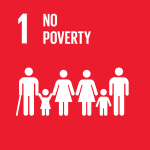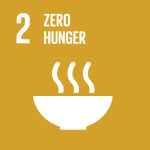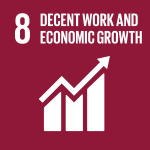From adversity to prosperity: A personal tale of resilience forged in Zambia’s changing climate

With training in goat management, diversification, and financial literacy, Lesi was equipped to get on her feet and set up a thriving business. Photo: UNDP
View the full photo essay by UNDP Climate on Exposure here.
At dawn in Kapululira, the sun peeks over the horizon, casting a golden glow upon the thatched-roof huts. Villagers wake to the gentle hum of nature, mornings marked by the diligent work of tending to crops and livestock. The rhythm of life is mostly slow and steady.
Change, however, is afoot. Erratic weather patterns increasingly keep farmers up at night. Once predictable farming cycles have become a gamble. While prolonged droughts leave soil parched and crops withered, more frequent flash floods wash away precious topsoil and delicate seedlings.
It is a common story across Zambia’s rural communities, where rising temperatures and unpredictable rains are upending food security and diminishing already-stretched household incomes. For the country’s 1.5 million farmers, uncertainty looms large. Particularly vulnerable are women, children, and people with a disability who are already fighting disadvantage in education, health, employment, and nutrition.
Recognising the needs and gaps, the United Nations Development Programme (UNDP) has been emphasizing social inclusion in all its programmes. This includes a UNDP-supported project focused on strengthening of climate resilience of farmers in Agro Ecological Regions I and II.
Implemented by the Ministry of Agriculture, with funding from the Green Climate Fund, the project (known as ‘SCRALA’) is working with UNDP to help almost one million smallholder farmers, particularly female-headed houses, to plan for climate risks, take up climate-resilient agricultural practices, and to strengthen their livelihoods through diversification, greater access to markets, and the commercialization of climate-resilient agricultural commodities, such as cowpeas, sunflower, and peanuts.
LESI’S STORY

Single mother of five, Lesi, 38, is deaf. It is a condition she has lived with her whole life.
One person whose livelihood has been transformed with support under the project is Lesi Malikapasa.
Several years ago, life was a daily struggle for Lesi. She had no income to support her family. The maize she grew on a ¼ hectare piece of land was frequently hit by drought and hammered by crickets, leading to reduced or no harvest. It was often hard to put a full meal on the table, with her children suffering poor nutrition as a result. Financial constraints meant her younger children could not go to school.
In 2019, though, things began to look up: Lesi took up goat rearing.
First, she attended a SCRALA-hosted training on goat production. Armed with knowledge on topics such as goat disease management and nutrition, she then took on four nannies and a billy goat through what’s called “a pass-on mechanism”.
Some community members expressed scepticism, believing because Lesi is blind, she would not be able to rear them.
“People said I would not be able to take care of the goats, because of my disability.”
Through what's called a "pass-on mechanism" under the SCRALA project, five goats are given to a beneficiary on a kind of loan – the beneficiary raises the goats until they increase to 10. When that number is reached, they give the two parent goats and three kids to a second beneficiary, at which point the remaining goats become their property. The second beneficiary raises their five goats until the herd increases to 10, then they too pass on the parent goats and three kids to a third beneficiary, and so on. The mechanism helps promote resilience by building community solidarity.
BUILDING A STABLE FUTURE
For fear of losing the goats, especially to theft, Lesi moved from her late parents’ house (which was quite isolated) to live with another family nearby. Settled in her new home, she constructed a goat house with help from some local youth.
Within two years, her efforts were paying off. Having increased her herd, she was able to sell three of the goats and use the money to buy vegetable seedlings and herbicides for her garden on the banks of the Kafue River.
“Goat rearing is very easy compared to cattle rearing because goats are resistant to some diseases and they don't require a big piece of land for grazing."
K1500 - K2500 a month (approximately US$80 - $132) from the sale of her vegetables – including okra, onions, and cabbages – enabled her to enrol her children in school, as well as to buy uniforms, shoes, and books. A bonus was that she could use her goats’ droppings as manure, saving her spending on conventional fertilizer.
Today, her family can afford three meals a day, consisting of vegetables, sweet potatoes, cowpeas, beans, bread, sorghum and maize meal, and assorted meat from local suppliers. And this year, with 16 goats (from the original five), she has been able to continue the "pass-on mechanism", giving four goats to the next person, Carita Mapulanga, a 52-year old single mother from the neighbouring village of Farao.
While Lesi admits life is still not necessarily easy – it takes a lot to monitor the goats, attend to her crops, and cater to household needs and chores – she is thankful for the opportunities afforded to her through the SCRALA project.
"If it were not for this opportunity, I wouldn’t be where I am today. With the goats and garden, I’m able to afford three meals a day and pay for my children school fees. My first-born child has completed Grade 12 and is now working in Chirundu town."
She also has words of encouragement to others in her community, especially those with a disability, urging them to stay determined and look afield for alternative sources of income. At the same time, she emphasizes that development programmes need to provide more support to people with a disability.
The perception that Lesi would not be able to take care of the goats was proven wrong. With training in goat management, diversification, and financial literacy, she was equipped to get on her feet and set up a thriving business.
Now, she intends to double her vegetable production from 250m² to 500m². She will need more manure of course. And as such, she has no intention of selling her goats – at least not until the goats increase to 50. Anything above 50 goats, that is when she will sell.

Lesi Malikapasa’s success story is one among many coming out of the SCRALA project in Zambia. To learn more about the project, click here.
UNDP remains the largest service provider in the UN system on climate change adaptation and 2002 has successfully completed 164 adaptation projects worldwide, including helping more than 7.4 million people across 48 countries benefit from enhanced food security and climate-smart agricultural practices. Learn more about our global adaptation work at adaptation-undp.org






